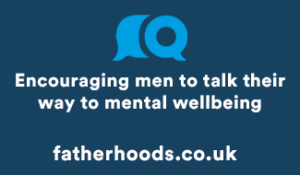Stressed people are often the last to recognise what is happening. Our children are no exception.
Could my child be stressed?
Just because your daughter isn’t complaining about finding your divorce stressful, it doesn’t mean she’s not suffering. If your toddler seems to be behaving differently: irritable, crying more than usual, having nightmares and regressing, chances are she’s stressed. Likewise, if younger children are permanently tired, not sleeping, whinging and doing badly at school, they too may be stressed. Teenagers, on the other hand, may surprise you with outbursts of anger, missing school and generally feeling bad and miserable about themselves and the rest of the world.
Children who have ongoing stress are more likely to develop colds, digestive problems, anxiety disorders, headaches and obesity.
Children who have ongoing stress are more likely to develop colds, digestive problems, anxiety disorders, headaches and obesity. Unless they learn to cope with stress, they’re more likely to misuse drugs and alcohol in their teens and adult life and become depressed and even suicidal.
What kicks off stress?
It could be almost anything. Common sources of stress include the death of a pet, arrival of a new brother or sister, dad being made redundant, parental separation, moving home, changing school, exams, university applications, being bullied, the death of a grandparent or an unresolved family argument.
What helps?
Sound, confiding relationships with adults are enormously helpful. It doesn’t matter who they are: parents, grandparents, aunts, uncles, godparents, family friends or teachers. Stressed children may not know what is causing them to feel awful and behave differently to usual. The trigger may be divorce, but ongoing stress in children often overwhelms them when there is more than one difficulty. What helps is being an active listener and being prepared to ask open questions to tease out what is wrong. Being heard and taken seriously by a parent helps children of all ages cope better with stress.
What else helps?
• Breathing slowly and deeply
• Having a long warm bath and listening to favourite music
• Exercise
• Hobbies to retreat into
• Relaxation exercises
Even very young children can learn a relaxation exercise called progressive muscle relaxation.
When to seek professional help
All children and adults feel stressed from time to time. Experiencing some anxiety in childhood and beyond is normal. As parents know, most toddlers are afraid of monsters and many children show some signs of anxiety on their first day at school.
Anxiety becomes a problem when it interferes with a child’s life. For instance, fear of contamination can lead to avoidance that gets in the way of friendships, fear of being away from home often affects a child’s ability to go to school and fear of the dark stops a child going to sleep. Children and young people with anxiety disorders experience extreme fears, worries or a sense of dread that is out of proportion with a real or imagined threat, and impacts on many aspects of life.
Anxiety disorders change how children and young people think, often affecting their ability to make logical decisions. Although historically thought to be harmless, these disorders can interfere with academic, social and family life.
Although anxiety disorders are so common in children and teenagers, they are also one of the least well understood conditions in this age group. Most anxiety disorders begin between the ages of 12 and 21, although they are often first diagnosed later in life. Anxiety disorders affect between one in five and one in ten children and teenagers at some stage of their lives. There is good evidence for early intervention and self- management for children and young people with anxiety disorders. Delays in diagnosis, failure to involve patients in treatment and poor follow up can lead to further deterioration.
When to see a specialist?
1. Does your child worry or ask for reassurance almost every day?
2. Does your child consistently avoid certain age- appropriate situations or activities, or avoid doing them without a parent?
3. Does your child frequently have tummy ache, headaches, or episodes of hyperventilation?
4. Does your child have daily repetitive rituals?
Ask for specialist assessment and therapy if:
1. Your child or teenager has persistent worries or intrusive thoughts, extreme clinging, avoidance, or repetitive behaviours that interfere with school performance, friendships or family life.
2. Your child has palpitations, chest pain, abdominal pain, vomiting, shortness of breath or sleeping problems for which no physical cause can be found.
Additional Reading/Resources
You may find our page on How To Tell Your Children You Are Divorcing – Recommended Books useful.
The Handover Book by Ashley Palmer is a unique and simple communication book for separated families. It will allow them both to always be aware of what is happening in their children’s busy lives as they go from one household to another. It’s a way of communicating the important things they both need to know about their children, while keeping your relationship as parents friendly and calm.
Charlotte Friedman has written Breaking Upwards – How To Manage The Emotional Impact Of Separation. Charlotte offers calm, therapeutic advice on everything from how to manage loneliness to letting go of grievance, and draws on illuminating case studies to answer questions such as: How long before I get over this divorce? How do I tell the children? How do I cope with the new partner in my ex’s life?
Posted on September 2, 2019
















